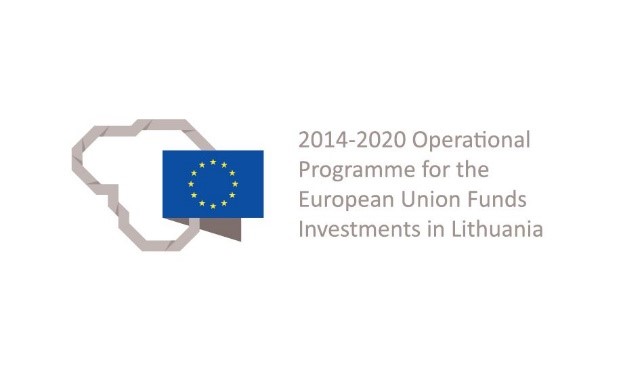We would like to announce that on 2018-06-18 UAB Biotechnologinės farmacijos centras “Biotechpharma” and Public Institution Lithuanian Business Support Agency signed an agreement for the development of “Biosimilar monoclonal antibody fragment synthesis in E. coli, manufacturing technology generation and capacity upscaling to 3000L” project. This project is financed according to the 2014-2020 European Union Investment Funds program, Priority No. 1 “Promotion of scientific research, experimental development and innovation”, No. J05-LVPA-K “Intelektas. Bendri mokslo – verslo projektai” invitation No. 3. “Biotechpharma” will receive 3.984.837,68 EUR from the European Union Funds to support successful project implementation. Project implementation period is from 2018 till 2021.
During this project “Biotechpharma” aims to develop a novel manufacturing technology of high efficacy Certolizumab pegol monoclonal antibody. Currently known technologies allow Certolizumab protein synthesis in relatively low yields (~ 20 mg/L) compared to the state-of-the-art industry standards (>4 g/L). This caveat occurs due to bacterial host, which is significantly more affordable but produces lower yields when compared to mammalian cell lines. Nevertheless, the bacterial system has its advantages, such as fast growth, efficient cloning, and well-known biosynthesis processes. Therefore, “Biotechpharma” has set out to develop a manufacturing technology of Certolizumab pegol monoclonal antibody using a microbial host, which would produce at least 10 times higher yield keeping industry frontier quality.
A breakthrough as such would not only reduce the costs of production, accelerate manufacturing processes and significantly increase product yield but would also provide the market with a high volume of a prospective therapeutic drug. Sequentially, this should encourage further preclinical and clinical research, potentially expanding Certolizumab’s therapeutic areas and driving the drug costs down for patients worldwide, including those suffering from autoimmune diseases.
This project is co-financed by the European Regional Development Fund.
